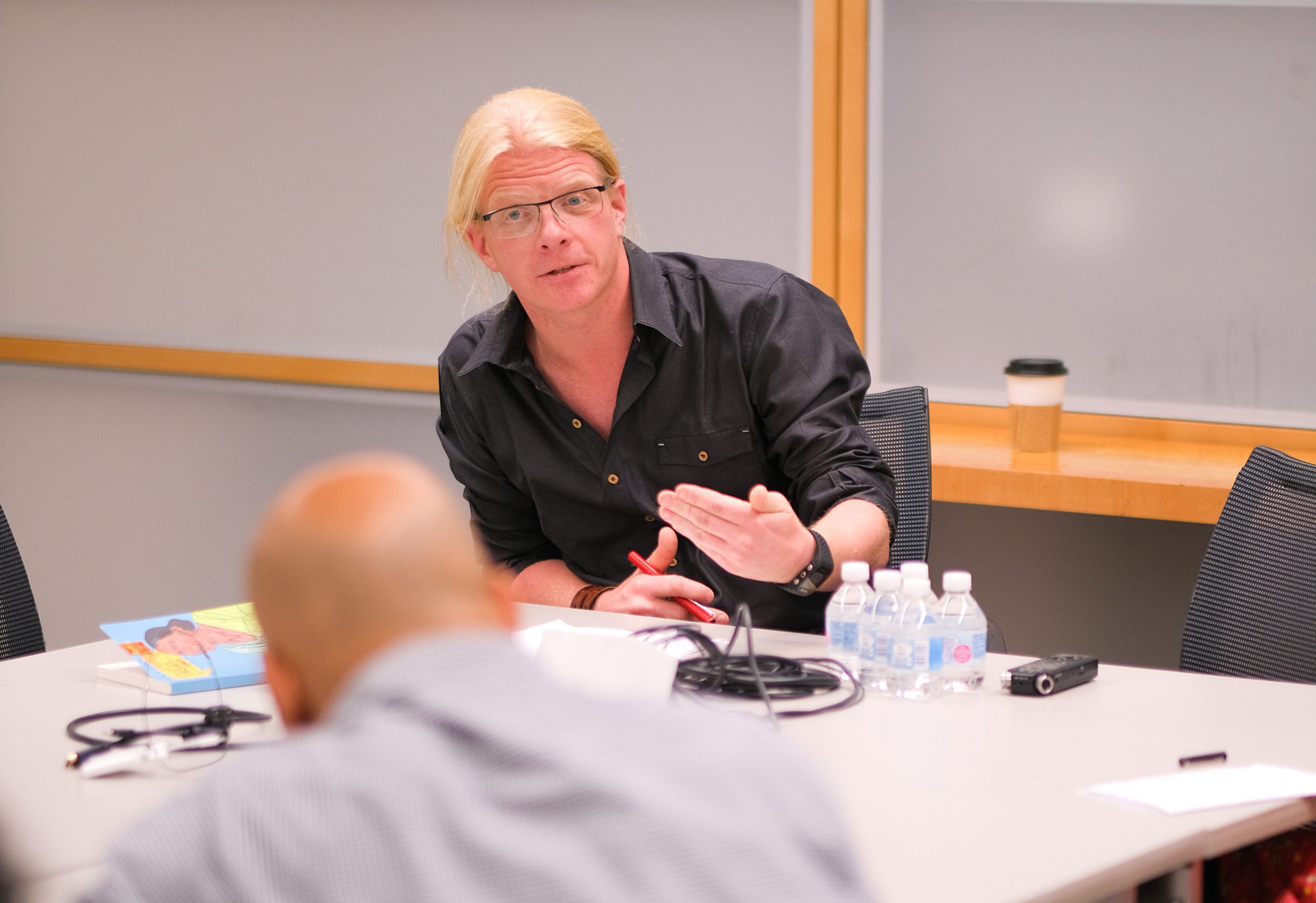
This week, Alf Nilsen, Professor of Sociology at the University of Pretoria, uncovered the answers to this question by investigating movement patterns in the Bhil heartland of western India, where Adivasi communities have organized and mobilized against the tyranny of the local state.
“The Bhil heartland has been the locus of mobilization for advancing Adivasi rights against oppressive local state apparatuses since the early 1970s,” said Nilsen. “What my study shows is that these movements registered some very significant achievements in terms of democratizing local state-society relations and fostering a political culture of insurgent citizenship in the region.” Nilsen’s book, Adivasis and the State: Subalternity and Citizenship in India’s Bhil Heartland, demonstrates how collective action can radicalize the meaning of the universal vocabulary of citizenship.
During his talk, Nilson discussed the dynamics that made it possible for Bhil’s Adivasi groups to come together “against the overwhelming odds of extreme subalternity to engage in active citizenship.” From this narrative comes a state-society relationship that Nilsen describes as “everyday tyranny.” Adivasi cultivation in the forest — “a customary practice which was a de facto crime due to the nature of Indian forest laws,” Nilsen said — led to the regular practice of state personnel resorting to threats and violence to extract bribes from the villagers.
“The state had consequently come to be viewed as a danger, an exploitative entity in the Bhil heartland, and ultimately, everyday tyranny was a durable form of political subordination,” said Nilsen. “It goes without saying that if refusing a demand was out of the question, democratic claims-making was not even thinkable.”
Nilsen traced back the concept of everyday tyranny at the state-society level to colonial state formation across the Bhil heartland, which had “basically annulled the shared sovereignty that had existed between Bhil forest policies and princely states in this region.” Today, this practice stretches back generations, ingrained in social norms. When Nilsen asked an activist of he would ever consider refusing a corrupt demand from a forest guard, the activist replied, “Nope, because our forefathers were also reacting like this, so we can’t refuse” — showing how enduring it has become across generations.
But with the help of “disenchanted NGO workers” and former activists, interventions into these corrupt practices began to target specific cases of malpractice by local state personnel “that reversed the grammar of everyday tyranny in important ways,” said Nilsen. He told the story of one village, where NGO workers challenged a demand by local police for a bribe to turn a blind eye to a dispute. “A delegation of villagers and activists confronted the deputy superintendent of police with the demands that had been made by local constables, and demanded to know whether this was legal or not,” Nilsen described. When it was made clear that it wasn’t — and that action would be taken against constables who engaged in these practices — the demands for the bribe were dropped.
With successes such as these, the Adivasi villagers began to chip away at the state-society framework that had dominated their communities for generations. “These confrontations were catalytic, above all, because they disarticulated the emotional habit of fear and resignation that had underpinned the durability of everyday tyranny,” said Nilsen. He summed up the effect of these confrontations with a quote from a local activist:
“I don’t feel scared if the collector or anyone else comes. We fought for our rights in the village here and took up rallies in cities and towns. In every village, people would hold meetings and discuss what their problems and issues were, and then would go meet the collector for a solution to the problems. So, by doing all this, the fears have gone away.”
